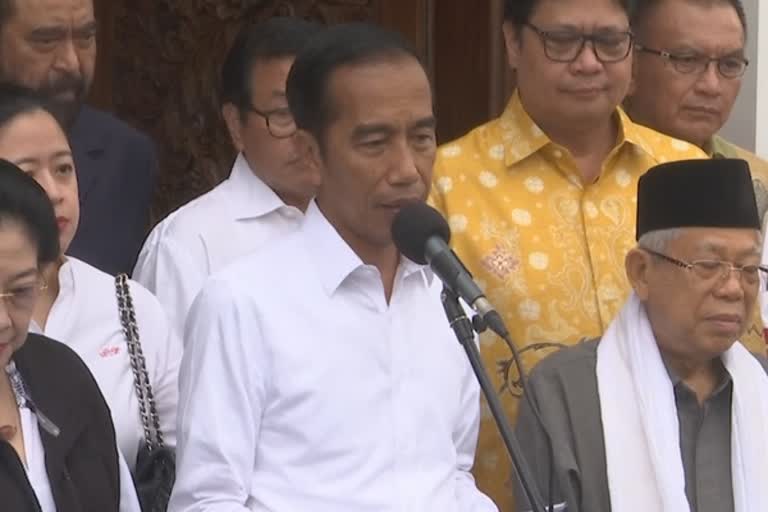Jakarta: Indonesian President Joko Widodo said on Thursday he has won re-election after receiving an estimated 54% of the vote, backtracking on an earlier vow to wait for official results after his challenger made improbable claims of victory.
Widodo, after meeting with parties in his coalition, told reporters that the leaders of Malaysia, Singapore, Turkey and numerous other nations have congratulated him on securing a second term.
The vote estimate is based on so-called quick counts of a sample of polling stations by a dozen reputable survey organisations.
Also Read: Thai authorities raid floating home set up by US man
Widodo said that 100% of sample polling stations have now been counted or close to that.
The quick counts have been accurate in previous elections.
"This afternoon we have received calls (of congratulations) from the Malaysian Prime Minister Mahathir Mohamad and also the Singapore Prime Minister Lee Hsien Loong and also from the Turkish President Recep Erdogan, and also 22 other nations," Widodo said.
Widodo's rival, former General Prabowo Subianto, has claimed he won 62% of the vote in Wednesday's election based on his campaign's own counts, repeating a similar claim when he lost to Widodo in 2014.
"Today, I, Prabowo Subianto with Sandiaga Uno have been declared as the president and vice president of Indonesia for period of 2019 - 2024 by 62 percent votes based on the (internal) real count," said Subianto, in front of a cheering crowd of supporters.
Also Read: China urges US, NKorea to 'get along with each other'
The Election Commission is required to release official results by May 22.
Indonesia, the world's most populous Muslim-majority nation, is an outpost of democracy in a Southeast Asian neighbourhood of authoritarian governments and is forecast to be among the world's biggest economies by 2030.
A second term for Widodo, the first Indonesian president from outside the Jakarta elite, could further cement the country's two decades of democratisation.
Subianto, a strident nationalist, ran a fear-based campaign, highlighting what he sees as Indonesia's weakness and the risk of exploitation by foreign powers or disintegration.



